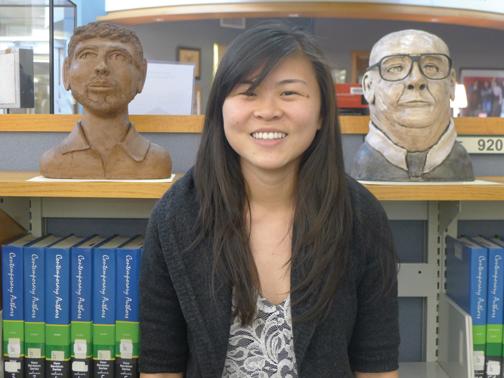 Last week, our nation shook in fear and anger as two young men wreaked senseless violence throughout Boston. Even now, exact details are still hazy; it will take weeks for this topic to fade from the national discussion. But though we may not know every minute bit of information regarding these tragedies, we can still draw out lessons that can help reaffirm our faith in the overall good of humanity.
Last week, our nation shook in fear and anger as two young men wreaked senseless violence throughout Boston. Even now, exact details are still hazy; it will take weeks for this topic to fade from the national discussion. But though we may not know every minute bit of information regarding these tragedies, we can still draw out lessons that can help reaffirm our faith in the overall good of humanity.
How would I know? I was there—not during the explosions that occurred on the afternoon of April 15 or the early morning of April 19, but before and after them.
An educational Mecca, Boston is home to at least 50 colleges and universities. As a senior, I was taking advantage of the month of April to visit some schools before I make my final decision in May.
The marathon blasts occurred on Bolyston Street, which I remember passing en route to Sunday morning dim sum in Chinatown on April 14. Runners who had arrived earlier were casually tracing the route in preparation for “Marathon Monday,” a beloved Boston tradition.
My second visit to Boston started on April 19; despite the MIT campus shooting and wave of explosions that had occurred the night before, our 6 a.m. flight was not derailed. However, since ground transportation was shut down—law enforcement feared the second suspect, who was traveling on foot, would use it to escape—the Boston/Cambridge area was largely inaccessible, so we were relegated to our hotel and the surrounding suburban area.
So what can we draw from this “terror attack,” which occurred just as our nation was slowly recovering from the most fatal public shooting in American history?
First, take note of the reaction of bystanders to the explosions. In released footage of the finish line of the Boston marathon, people ran toward the explosions in an effort to help the injured. Runners who had just completed a marathon ran further to Massachusetts General Hospital to donate blood and to notify hospital workers about the incoming wave of injured people. Doctors and EMTs in the race elected to not finish in order to provide first aid to those near the blasts. In contrast, when planes flew into the World Trade Center on 9/11, most civilians bolted.
Second, Americans have come together to ensure that the proper parties receive their punishment. The FBI received at least 2,000 tips in the first few hours following the Monday bombings, and bystanders with cell phone pictures and videos immediately shared them with law enforcement agencies.
Some, like NPR, have called it the “first truly crowd-sourced investigation.” As more questions continue to be answered in the following weeks, the bigger takeaway is the unity of the American populace, in spite of the violence. Americans cooperated with police, stayed indoors, and trusted in the ultimate fairness of our nation’s law enforcement and justice systems. And even though I’m now almost 1000 miles away from Boston, that fact will always make me proud to be an American.
Melinda Song is a managing editor for the HiLite. The views in this column do not necessarily reflect the views of the HiLite staff. Reach her at msong@hilite.org.

































![AI in films like "The Brutalist" is convenient, but shouldn’t take priority [opinion]](https://hilite.org/wp-content/uploads/2025/02/catherine-cover-1200x471.jpg)









































![Review: “The Immortal Soul Salvage Yard:” A criminally underrated poetry collection [MUSE]](https://hilite.org/wp-content/uploads/2025/03/71cju6TvqmL._AC_UF10001000_QL80_.jpg)
![Review: "Dog Man" is Unapologetically Chaotic [MUSE]](https://hilite.org/wp-content/uploads/2025/03/dogman-1200x700.jpg)
![Review: "Ne Zha 2": The WeChat family reunion I didn’t know I needed [MUSE]](https://hilite.org/wp-content/uploads/2025/03/unnamed-4.png)
![Review in Print: Maripaz Villar brings a delightfully unique style to the world of WEBTOON [MUSE]](https://hilite.org/wp-content/uploads/2023/12/maripazcover-1200x960.jpg)
![Review: “The Sword of Kaigen” is a masterpiece [MUSE]](https://hilite.org/wp-content/uploads/2023/11/Screenshot-2023-11-26-201051.png)
![Review: Gateron Oil Kings, great linear switches, okay price [MUSE]](https://hilite.org/wp-content/uploads/2023/11/Screenshot-2023-11-26-200553.png)
![Review: “A Haunting in Venice” is a significant improvement from other Agatha Christie adaptations [MUSE]](https://hilite.org/wp-content/uploads/2023/11/e7ee2938a6d422669771bce6d8088521.jpg)
![Review: A Thanksgiving story from elementary school, still just as interesting [MUSE]](https://hilite.org/wp-content/uploads/2023/11/Screenshot-2023-11-26-195514-987x1200.png)
![Review: "When I Fly Towards You", cute, uplifting youth drama [MUSE]](https://hilite.org/wp-content/uploads/2023/09/When-I-Fly-Towards-You-Chinese-drama.png)
![Postcards from Muse: Hawaii Travel Diary [MUSE]](https://hilite.org/wp-content/uploads/2023/09/My-project-1-1200x1200.jpg)
![Review: "Ladybug & Cat Noir: The Movie," departure from original show [MUSE]](https://hilite.org/wp-content/uploads/2023/09/Ladybug__Cat_Noir_-_The_Movie_poster.jpg)
![Review in Print: "Hidden Love" is the cute, uplifting drama everyone needs [MUSE]](https://hilite.org/wp-content/uploads/2023/09/hiddenlovecover-e1693597208225-1030x1200.png)
![Review in Print: "Heartstopper" is the heartwarming queer romance we all need [MUSE]](https://hilite.org/wp-content/uploads/2023/08/museheartstoppercover-1200x654.png)




